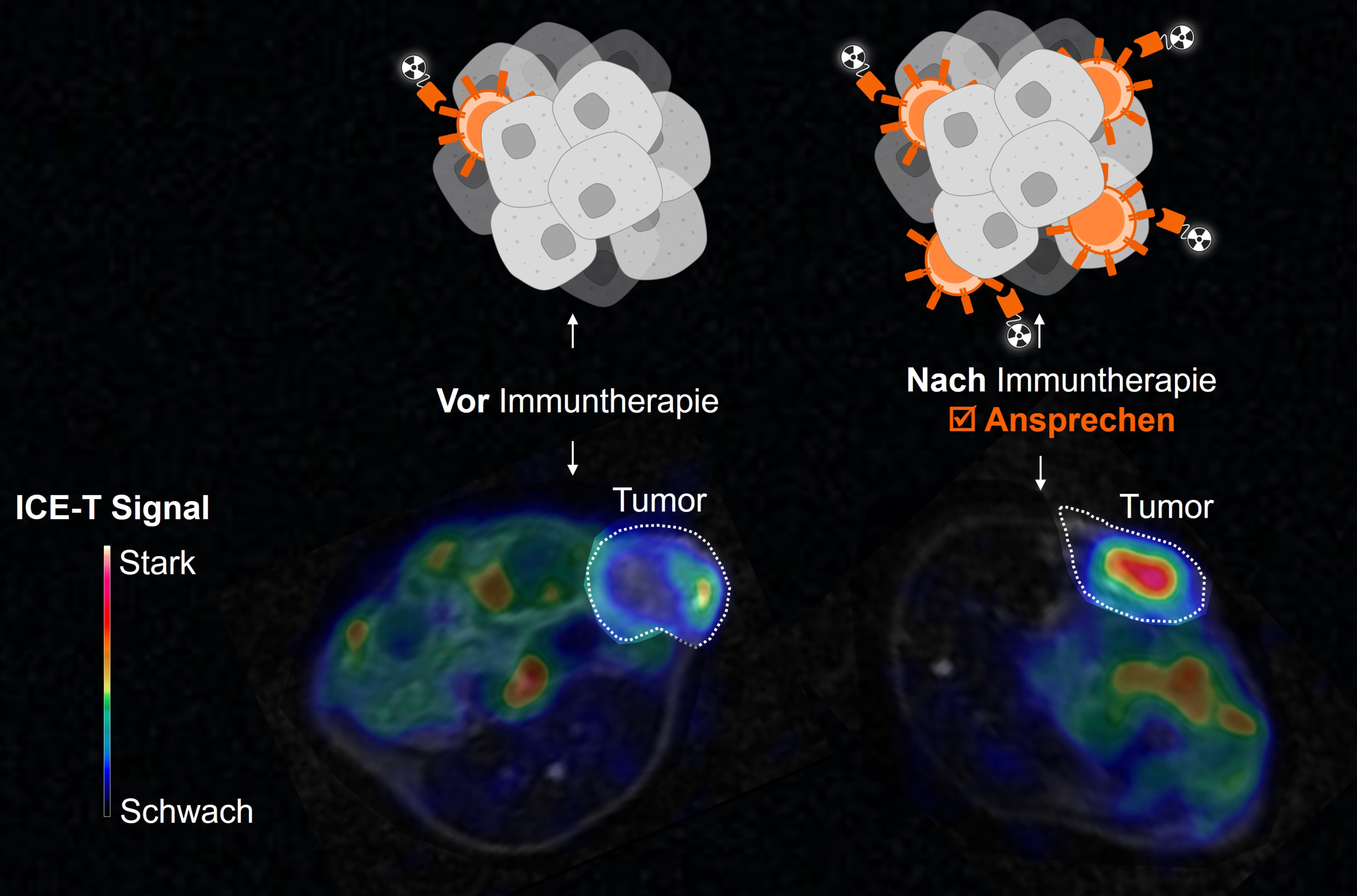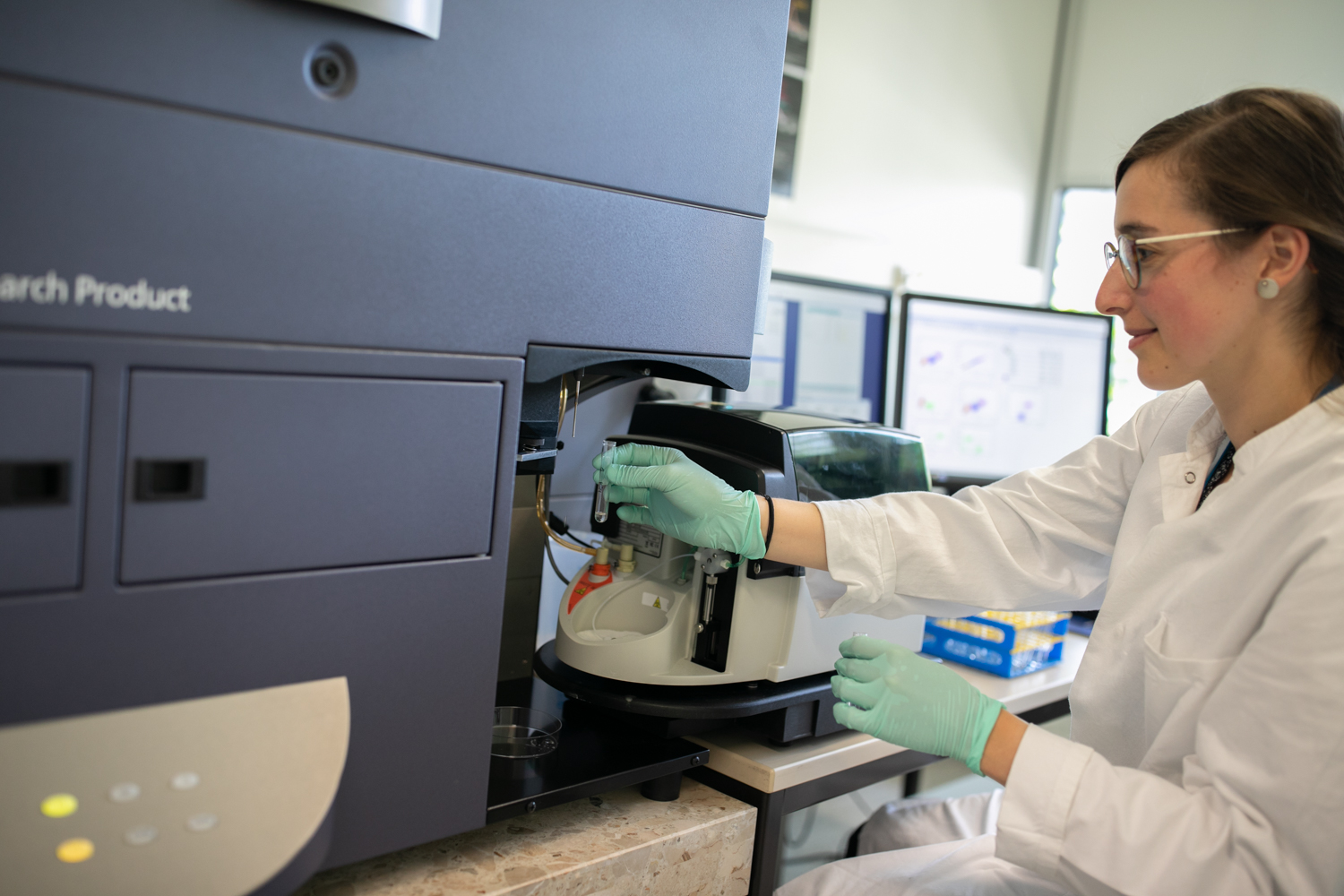immuneAdvice develops diagnostics to predict the efficacy of immunotherapies
Certain types of cancer are already being effectively treated using immunotherapies, though success rates can vary significantly between patients. Researchers from the Natural and Medical Sciences Institute (NMI) at the University of Tübingen in Reutlingen, along with colleagues at the University of Tübingen, are working on a diagnostic approach to accompany therapy, which would rapidly assess whether the treatment is effective or requires adjustment. In July 2024, Reutlingen-based immuneAdvice GmbH was spun off from the NMI and is currently putting together an investment consortium to secure follow-up financing.

Immunotherapies are already achieving success in treating malignant melanoma, lung cancer and several other tumour types. The immune system normally recognises and destroys tumour cells, but some manage to evade this natural defence. Immunotherapy helps the immune system to identify and attack cancer cells. However, predicting how individual patients will respond is challenging. "Our goal is to use precise diagnostics to match patients with the right therapy at the right time," says Dr. Teresa Wagner, project manager at the NMI in Reutlingen. The NMI researchers have enhanced and radioactively labelled special antibody fragments isolated from alpacas following immunisation. When these immune cell tracers (ICE-Ts) are injected into patients, they bind to specific immune cells, and can be visualised via positron emission tomography (PET). When combined with CT or MRI imaging, this approach can be used to precisely locate tumour and immune cells in tissue or bone.
This approach enables real-time observation of immune cell behaviour within the tumour environment. "In so-called ‘hot’ tumors, immune cells are abundant within the tumour tissue - an indicator that the immunotherapy is effective," explains Wagner. However, with ‘cold’ tumours, immune cells cannot penetrate the tumour to combat it. This finding allows clinicians to quickly determine whether a patient is responding to immunotherapy or whether adjustments are needed. Unlike a biopsy, which provides a limited snapshot of a specific area, this new non-invasive technique visualises the entire tumour area, enabling continuous monitoring of therapy progression.
Investors are being sought for clinical phase

"We’re not targeting specific cancers but are looking at the broader scope of immunotherapy," explains Dr. Wagner. The team has developed a portfolio of various ICE-Ts, with their lead candidate already through preclinical development. The next step is filing for a Phase I clinical trial to evaluate its use in patients. However, with no further public funding available, Wagner and her team have opted to create a spin-off. "We are now actively seeking investors to advance to the clinical phase," she says. The initial focus will be on malignant melanoma, where immunotherapy is already a standard treatment.
Wagner anticipates that her team will enter the clinical phase by late 2025. The Phase I study will assess the tolerability and safety of the diagnostic system in approximately 15 skin cancer patients. Given that it is an imaging-based procedure, this phase will provide insights into whether and how well the diagnostics function. Phase I is anticipated to take around a year, and will pave the way for larger-scale studies to confirm that ICE-Ts can indeed enhance immunotherapy guidance. "With numerous new therapies currently in development, equipping physicians with effective tools to select the most promising treatment for each patient will be increasingly important," says Wagner.
Successful acquisition of EXIST research transfer funds

Wagner's colleagues initiated the concept of developing immune cell tracers in 2018, and in 2020 she joined the NMI team, where she developed the second lead candidate as part of her doctoral work. Since 2022, the team has explored the idea of creating a spin-off and, in 2023, secured nearly two million euros EXIST funding for a period of two years in order to make the move from research project to start-up. The 'EXIST - University-based Business Start-ups' programme is co-funded by the European Union and the German Federal Ministry for Economic Affairs and Climate Action through the European Social Fund Plus. The researchers’ business concept also earned recognition at the Science4Life Venture Cup business plan competition, where Wagner notes, "The feedback on our business plan was invaluable."
The team is now focused on securing investors. "We’re still in the early stages, and the major hurdle is bringing everything to the clinical phase, which requires significant funding that is only achievable through an investment consortium," says Wagner, highlighting the challenges the team faces. In July 2024, Wagner and a core four-member team of researchers and physicians launched immuneAdvice GmbH, with support from experienced mentors from the NMI and the University of Tübingen. Once financing is secured, the start-up company plans to move into rented space at the NMI, and hopes to be fully operational by spring/summer 2025.
The researchers are currently focused on diagnostics that closely accompany therapy, with the ultimate goal of combining both within a single molecule - a concept known as theranostics. Wagner sees potential for future expansion into therapeutic development, including creating combined therapeutic-diagnostic molecules.